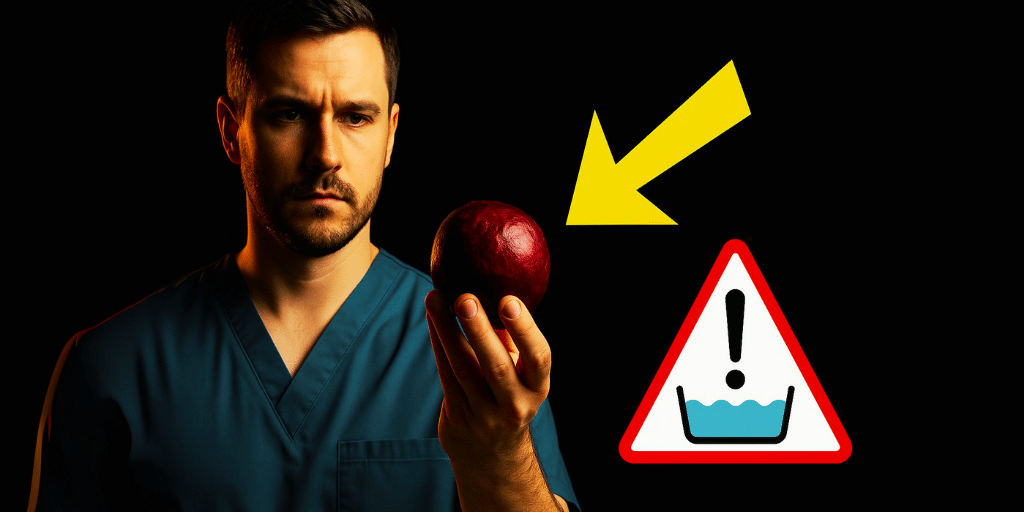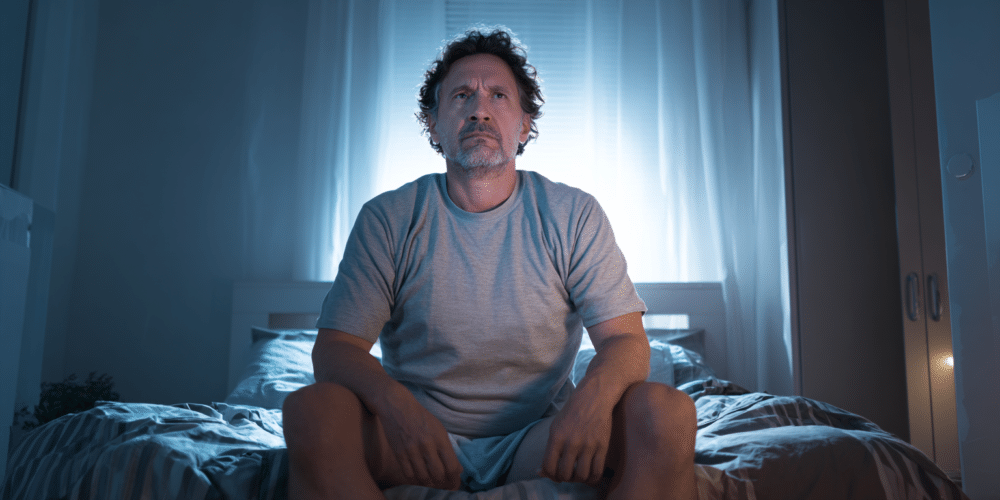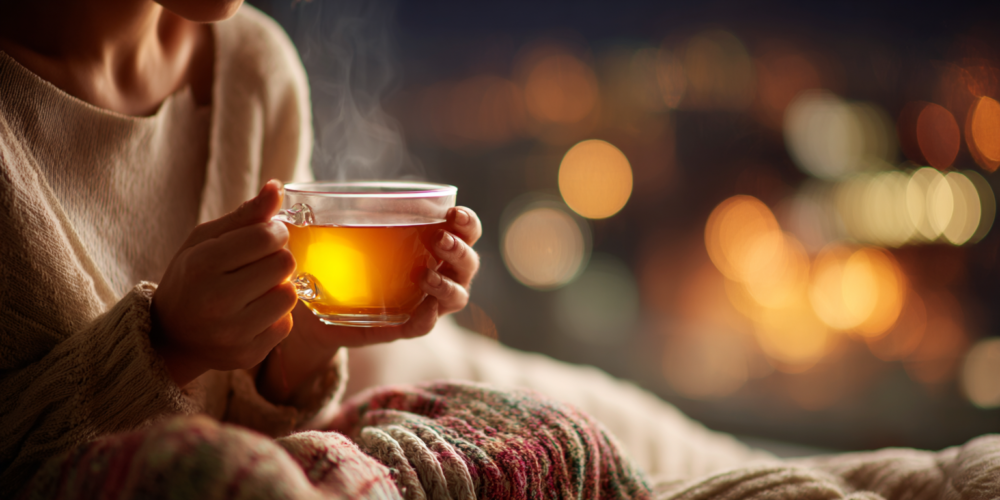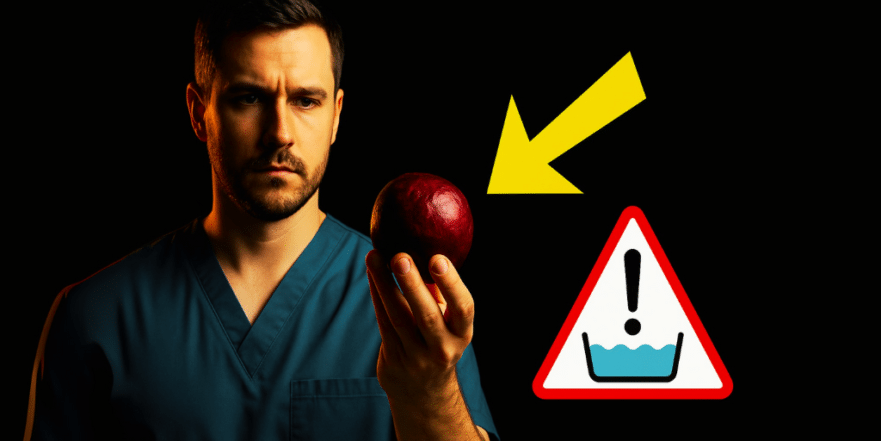
Imagine this: it’s 2 AM, and you’re lying in bed, staring at the ceiling, wide awake. You know you’ll have to get up to pee again soon because your bladder feels full. If you’re over 55 or 60 and this sounds familiar, there’s good news: there’s a solution! By fixing some common mistakes you might be making at night, you can solve this problem right away.
Most older adults, over 70% of them, make these mistakes as part of their nightly routine. These habits increase the need to urinate, stop deep sleep, and, over time, hurt their health. The amazing part is that changing these habits creates a ripple effect of huge, long-term benefits for your body. You’ll not only control your bladder better, but you’ll also protect your memory, your ability to move around, and your chance to live a full life, all because you’ll be sleeping better. (Based on the knowledge of nephrologist, Dr. R.N. Veller)
And get this: a big study found something pretty scary. If you wake up three or more times a night to pee, you’re almost 70% more likely to fall or trip. You’re also 50% more likely to have heart problems, and your memory can get much worse in just six months. On top of that, when you get up many times at night, your body doesn’t get into the deepest sleep stages. These stages are super important for cleaning and fixing your body, protecting your memory, and making your immune system stronger. And you know what worries me the most? Most of the time, this has nothing to do with your prostate or bladder. It has to do with one of these seven “night enemies” that you need to fix to stop getting up to pee all the time, especially numbers six and seven.
➡️1. Stop Normalizing What Isn’t Normal

Let’s look at enemy number one: believing this symptom is a normal part of getting older. It’s not. Waking up three, four, or more times a night to pee shouldn’t be seen as normal just because you’ve had another birthday. It’s actually an inside sign that something might not be working right.
After 60, it’s okay to get up once, maybe twice, to pee. More than that isn’t normal, especially if it messes with your sleep and leaves you feeling tired all the time. The problem is that many people just give up and think, “Oh well, this is just another part of getting old.” They let something go that actually has a solution. Or even worse, they don’t get help in time to find silent health problems that might be causing this, as I’ll tell you about soon.
But I’ll tell you this: most of the time, peeing a lot at night is linked to our bad habits or nightly routines that seem harmless. Many people even think these are healthy habits. So, the first step to getting better is to understand this: stop thinking what’s abnormal is normal. Don’t just accept walking to the bathroom like a zombie every night and being exhausted the next day. Today, you’ll learn what’s really behind this and what you can do to start sleeping peacefully tonight.
➡️2. The 2-Hour Trap

Now, let’s talk about enemy number two: the 2-hour trap. More than 85% of older people make this mistake every night, thinking they’re doing something good for their health. But they’re actually messing up their sleep. Does any of this sound familiar? Drinking herbal tea to relax before bed, having a light salad for dinner, a little broth, or eating a juicy fruit like watermelon for dessert. You probably think, “This is healthy and relaxing.” And yes, it is. The problem is the timing.
Many people don’t know that these foods, even the most natural, healthy, or light ones, are made of more than 90% water. When you eat them within two hours of going to bed, your kidneys stay active when they should be in their nighttime rest mode. Your kidneys don’t know the difference between a glass of water and the liquid in some foods like the ones I mentioned.
And the worst part? Many of these foods with hidden liquids have natural things that make you produce even more urine. That herbal tea you drink to relax might have a slight diuretic effect. That tomato soup is full of potassium, magnesium, and often a lot of sodium, which makes your kidneys work even harder. And that salad full of juicy vegetables or that tasty watermelon, even though they’re super healthy foods, can keep your bladder from resting for a moment during the night. This happens simply because your body thinks it’s still in daytime mode.
So, what should you do? The answer isn’t to stop eating healthy, but to change your timing. Ideally, finish your dinner at least two hours before you go to bed. If you live somewhere where it gets dark early, use the sunset as a guide. When the sun goes down, your urinary system should also start to go into rest mode. Also, if you get very thirsty at night, take small sips or chew on an ice cube instead of drinking a big glass of water. By doing this, you’ll notice a big difference in just the first few nights. Fewer trips to the bathroom, more deep sleep, and a body that can finally fix itself when it needs to.
➡️3. The “Just in Case” Pee Trap

Let’s move on to enemy number three: the trap of peeing “just in case,” even if you don’t feel like it. This habit seems so logical that over 90% of older people follow it strictly, without realizing it’s actually training their bladder to work against them. Before bed, before traveling, before a meeting, it’s a good idea to empty your bladder even if you don’t feel the urge. But the problem is when you do it many times a day, every day, as part of your routine, without your body asking for it.
Think about it: your bladder, believe it or not, is also a muscle that can be trained and learns through repetition. If you get it used to emptying itself repeatedly when it’s only half full or when you don’t feel the urge, you teach it that this small amount is enough to trigger the feeling of needing to pee, as if it’s already enough to hit the “urgent” button. What’s the result? Over time, this greatly reduces the working capacity of this organ.
A healthy adult’s bladder should be able to comfortably hold 300-400 ml of urine. But when you get into the habit of peeing “just in case,” your bladder starts sending urgent signals with only 100-150 ml, creating false alarms that wake you up with that “can’t hold it anymore” feeling. And when you go to the bathroom, you realize you only had half a cup of urine. Understand this: if you train your bladder badly, your brain won’t let you rest at night because it keeps sending you these false signals.
Now, the most worrying part is that this bad habit doesn’t just ruin your sleep. Over time, if you wake up many times at night, you become much more likely to fall and trip in the dark. Did you know that many hip fractures, head injuries, and even long hospital stays for older adults are caused by accidents during nighttime bathroom trips? But also, this creates insomnia, and anxiety about not being able to sleep, and in the long run, it leads to physical and mental exhaustion.
So, what’s the solution? First, go to the bathroom before bed, but only once. And during the day, avoid going to pee every hour, all the time, just “in case,” without really needing to go. If you already have this problem and want to get your bladder’s working capacity back, train it because it’s a muscle. Besides waiting until you really feel the urge, try to pee at regular but slightly longer intervals throughout the day, every 3-4 hours.

